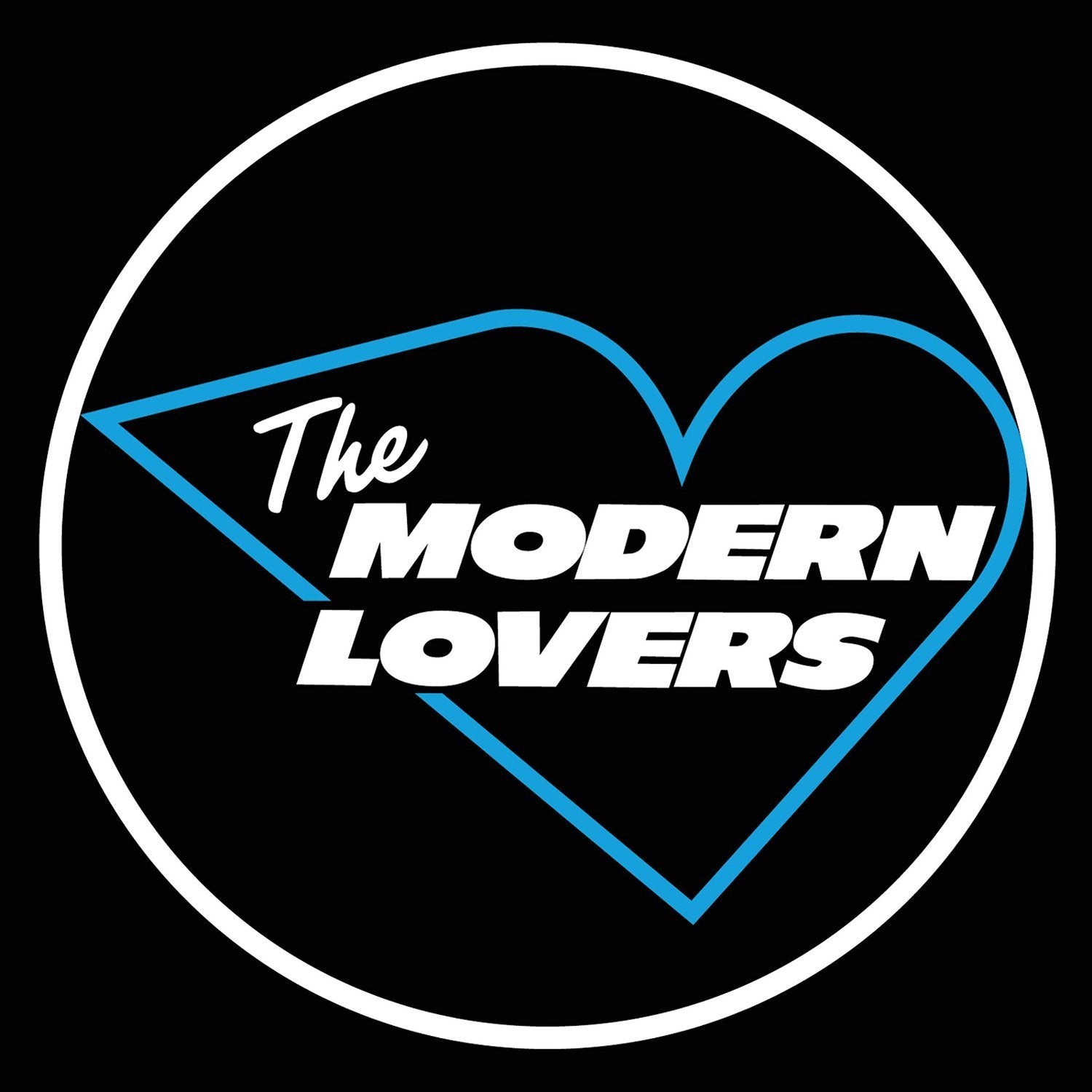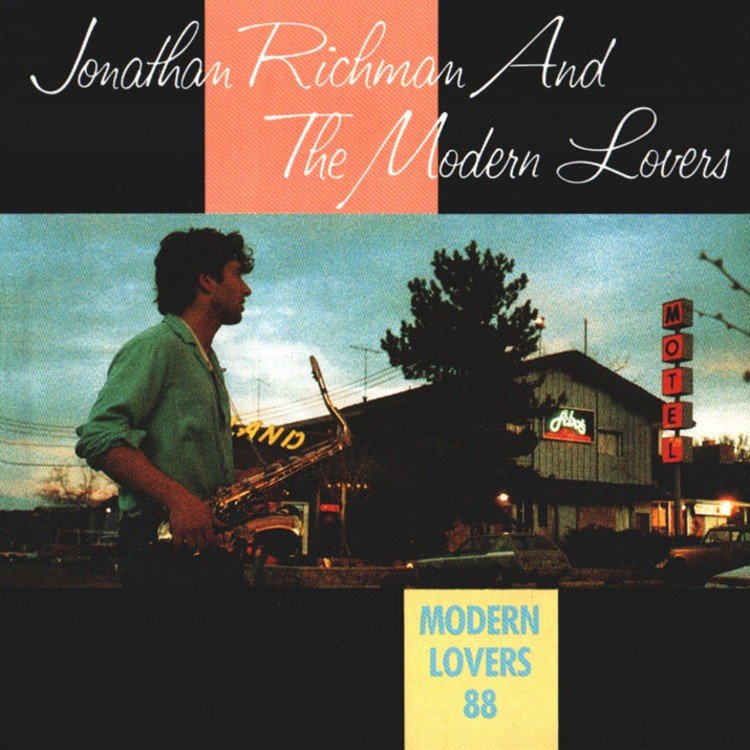Jonathan Richman -opas
Analysoimassa popmusiikin ihmelapsen syvää katalogia
Vähemmän kuin sivun verran Love Goes to Buildings on Fire -kirjasta, Will Hermesin määrittelevä teos 1970-luvun New Yorkin musiikkikohtaloista, joku repii paitansa pois. Mutta konteksti on avainasemassa - syyllinen oli 21-vuotias Jonathan Richman, joka muovasi itsevarman seksisymbolin roolia tavalla, jota kukaan ei ollut tehnyt ennen häntä. Hän aloitti omien kappaleidensa esittämisen 5 vuotta aiemmin Cambridge Commonsissa, pelottamalla tai houkuttelemalla ohikulkijoita projisoimalla ääntään ja suodattamattomia havaintojaan.
Hän on aina laulanut siitä, mitä näkee, tukeutuen charmiin, muutamaan soittokieleen ja “ensimmäinen ajatus, paras ajatus” -mentaliteettiin, nostamaan aitoja rock-kappaleita. “Cappuccino Bar” ilmentää ylilyötyä kahvin juontia. Kappaleessa “You Can’t Talk To The Dude” Richman myötäelää kömpelöä kämppiskokemusta. Hitit kuten Velvet Undergroundista inspiroitunut “Road Runner” saavat hänet väittämään, ettei hän ole koskaan kirjoittanut sanoja ylös.
Richman ei koskaan menettänyt kosketusta lyyriseen aitouteen, riippumatta siitä, mitä kokoonpanoa hän soitti: Modern Lovers, Jonathan Richman and the Modern Lovers, tai Jonathan Richman, soololaulajana. Alkuperäinen Modern Lovers julkaisi itsensä nimellä varustetun debyyttinsä eron jälkeen vuonna 1976, ennen kuin Richman suuntasi länteen ja muodosti uuden kokoonpanon. Se konfiguraatio oli myös lyhytikäinen. Nykyisin hän on sooloartistina kokopäiväisesti, lukuun ottamatta säännöllisiä live-yhteistyöprojekteja rummuttaja Tommy Larkinsin kanssa. Myöhemmin tässä kuussa hän lämmittelee FYF Festin erittäin täyteläistä lauantai-ohjelmaa yhdellä päivän aikaisimmista keikoista, ja on hyvin vaivan arvoista kestää kuumuutta nähdäkseen hänen tunnusomaisen kitarahihnattoman esityksensä. Melko massiivisessa discografiassaan valitsimme viisi hänen parasta aloituslevyään tunnelman luomiseksi.

The Modern Lovers (1976)
Äänitetty satunnaisesti vuodesta 1971 alkaen, tämä kokoelma alkuperäisen Modern Lovers -kokoonpanon äänityksistä on teknisesti Richmanin ensimmäinen albumi. Hän ei juurikaan tunnusta sitä sellaiseksi. The Modern Lovers vangitsee tähdellisiä visioita nuoresta Richmanista, jolla on Jazzmaster kädessään julkisessa puistossa. 20-vuotiaana hän tasapainoili eri soundien välillä, eikä ollut varma omasta tyylistään. The Modern Lovers—albumi, jonka hän katsoo olevan hänen todellinen debyyttinsä—esittelee jännittävää, harmoniapitoista tyyliä, johon hän lopulta päätyi. Onneksi hän ei koskaan luopunut tuosta puhtaan runollisesta visiosta, joka ohjasi The Modern Loversia.

Modern Lovers 88 (1988)
Richmanin toinen versio Modern Loversista (innovatiivisesti nimetty Jonathan Richman and the Modern Lovers) esitteli kehittyvää kokoonpanoa 12 vuoden ajan. Modern Lovers 88 merkitsi heidän viimeistä julkaisuaan, viimeistellen Modern Lovers -projektin kerran ja kaikkiaan. Tässä Richmanin yli kymmenen vuotta kestänyt säätö taustabändinsä kanssa palkitaan täydessä kuorovoimassa. Yhteensä neljällä sanalla ja yhdellä twangy, akustisella soololla, “Gail Loves Me” nostaa epäselviä vokalilinjoja Richmanin tyypillisten havainnot runouden ylle. Hän esittelee viimeisen Lovers-konserttinsa, ja tuolla äänellä, kuka voisi hänelle moittia? Modern Lovers 88 on kesän albumi joka vuosi, rakkauskirje ulkona vietettyyn aikaan, hihattomana. Laulamisen vältteleminen olisi kesäsynti.

Having a Party with Jonathan Richman (1991)
Kun hän vihdoin irtautui Modern Lovers -nimikkeestä, Richman aloitti 90-luvun hieman hämmentävällä Jonathan Goes Country -albumilla. Hänen rockabilly-kitarariffinsä elävät, mutta levyssä on valtava puute hänen huumoristaan—siihen Having a Party with Jonathan Richman tarttuu. Tempo muutokset ja vokalisoinnit á la Exile on Main St. (”woo!” täällä, ”yeah!” siellä) tekevät Richmanin sarkastisista itsensä kritiikeistä entistä tanssittavampia. Muutamat kappaleet, kuten “When I Say Wife”, on äänitetty live-yleisön edessä, kera hyvin ajoitettujen nauru- ja suosionosoitusten, äänekkäimmät kun hän laulaa, “Wife sounds like laundry.” Hänen puhe-laulamistyylinsä menee täydelliseen monologiin “1963” ja “Monologue About Bermuda” -kappaleissa, muistuttaen meitä siitä, että hänen lahjakkuutensa on aina ylittänyt lauluntekemisen. Hän on sydämeltään tarinankertoja.

I, Jonathan (1992)
Enemmän kuin minkään muun Richman-albumin, I, Jonathan kartoittaa hänen uraa Modern Loversin vuoden 1976 debyytistä lähtien. Hän tarvitsee alle 45 minuuttia koskettaakseen kaikkia hänen tavaramerkkejään: taputuksia, tiiviitä harmoniaa, lähes lastenloruja hyppykeijumista tai Lou Reedin taikuutta. Hän esittelee sitä lapsenomaisen innostuksen ilman, että hän vaikuttaa naiivilta. Sen sijaan hänen ilonsa paljastaa arvostusta aliarvostetuista iloista—mukavasta säästä tai lempikappaleestasi lempibändiltäsi. “I Was Dancing in the Lesbian Bar” paljastaa hänen intohimonsa tuntemattomaan, siihen, mitä hän ei ole ennen nähnyt tai tuntenut. Mutta “Twilight in Boston” -kappaleessa, kävellessään esikaupungissa, hän näkee charmia myös tutussa.
Voit ostaa VMP-version tästä albumista juuri täältä.

Not So Much to Be Loved As to Love (2004)
On vaikeaa kuvitella rakastavansa rakkautta yhtä paljon kuin Richman. Hän julkaisi Not So Much to Be Loved As to Love alle vuotta hääpäivänsä jälkeen, mikä johti ennätyksellisiin romanttisiin tasoihin. Melkein kolmen vuosikymmenen jälkeen serenadin sisällä oleva koukku tuottaa edelleen makeutta. Jopa instrumentaalinen “Sunday Afternoon” kuulostaa Richmanilta joka oikeudella, korvaten sanoitukset yhtä intiimillä kitaran ja basson halaamisella. Tänä ystävänpäivänä Richman aloitti Angel Olsenin kanssa hänen suurimmassa keikassaan koskaan. Hän sisällytti yhden Not So Much -albumin tarttuvimmista kappaleista, “My Baby Love Love Loves Me Now”—totuuden kertomus arvostuksesta. Perusluonteeltaan Richman hyväksyy rakkauden helpommin kuin monet. Se on todennäköisesti se lapsenomaisin ominaisuus, joka hänellä on. Jokainen kerta tuntuu kuin ensimmäisellä kerralla.




